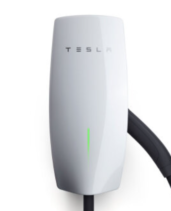Sales of electric vehicles are continuing to grow in the UK, according to latest new car registrations from the Society of Motor Manufacturers and Traders (SMMT).
Although February’s car sales in the UK experienced a dip, with a 1% decline bringing total registrations to 84,054 units, EV sales are continuing to take a larger percentage of total sales.
The most significant growth was seen in the electric vehicle (EV) segment, particularly battery electric vehicles (BEVs), which surged by almost 42% to 21,244 units, representing a quarter of all new car registrations.
This growth in BEV uptake is particularly noteworthy against the backdrop of upcoming tax changes set to introduce new financial burdens on electric car owners.
BEV registrations, now accounting for 25.3% of the market up from 17.7% last year. This aligns with consumer anticipation of the vehicle excise duty expensive car supplement (ECS). This tax, effective from April, will add significantly to the cost of owning an EV priced above £40,000.
The reduction in new car sales overall, marks the fifth consecutive month of downturn for the sector, attributed largely to a 4% drop in fleet registrations, a traditional driver of market growth. Despite this, there were notable increases in both private and business buyer volumes, with private registrations climbing 4.6%, increasing their overall market share to 35.6%, and business sector registrations up by 3.3%. But that’s not the whole story.
“February’s subdued overall market figures mask the robust uptake of electric vehicles, driven by imminent fiscal changes,” said Mike Hawes, SMMT Chief Executive. “While the growth is encouraging, the approach to EV incentives requires a balance to avoid disincentivising potential EV buyers with punitive measures.”
The sharp increase in EV registrations comes ahead of the March numberplate change, traditionally a peak period for car sales. This is often seen as a last opportunity for buyers to capitalise on more favourable pricing before the new tax measures kick in on 1st April. From that date, all BEVs will face a £10 VED in their first year, with an annual VED of £195 thereafter until the sixth year, totalling £985. For higher-end models exceeding £40,000, an additional annual charge of £425 applies during years two to six, culminating in a total cost of £3,110.
Despite these changes, the market remains challenged by the high average cost of BEVs, which stood at £48,000 in 2024. That’s more than double the average price of the top 10 most popular cars in 2019. This price hike, coupled with stagnant consumer purchasing power, suggests that the current market dynamics might be artificially dampening demand.
When looking at the top 10 best selling cars, Tesla is still leading the way in second and third spot:-














